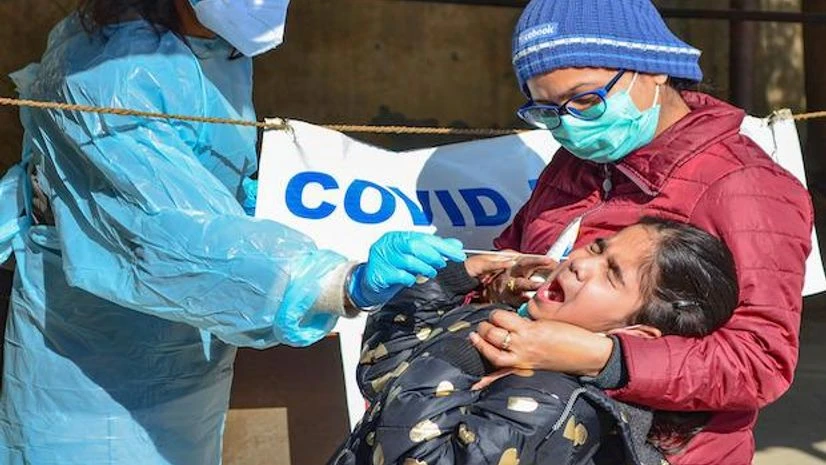Amid the third wave of the COVID-19 pandemic, India has completed two years since the first coronavirus case was reported in the country and during this time, it has not just battled the virus but also its mutated variants, even as uncertainty continues to surround the expected course of the pandemic.
It was on January 30, 2020 when a third-year medical student from Wuhan university tested positive for coronavirus, becoming the country's first COVID-19 patient, days after she had returned home following semester holidays.
Since then, India has battled three waves of COVID-19 and its seven mutated variants, many of which turned out to be lethal.
Till now, India has reported 4,10,92,522 cases and 4,94,091 fatalities due to COVID-19 and its variants.
According to the Indian SARS-COV-2 Genomics Consortia INSACOG, there are seven variants of concern that have been identified in the last two years in India Alpha, Beta, Gamma, Delta, B.1.617.1 and B.1.617.3, AY series and Omicron.
Of these, Delta and Omicron variants have been found to be the most dangerous with the former driving the second wave of COVID-19 while the latter is behind the ongoing third wave.
More From This Section
A senior official said out of 1.5 lakh samples sequenced till January 2, variants of concern and interest have been found in 71,428 of them.
Out of the 71,428 samples in which variant of concern and interest was found, 67,700 samples were found in the community while 3,728 were found in travellers and their contacts, the official said.
Also, out of the 71,428 samples, Delta variant was identified in 41,220 samples followed by those found in the AY series of COVID-19 at 17,114.
However, presently Delta has been replaced by Omicron as the dominant variant in most metros and cities.
Union Health Minister Mansukh Mandaviya on Saturday said irrespective of the Covid variants, 'Test-Track-Treat-Vaccinate and Adherence to Covid-Appropriate Behaviour' will continue to remain the tested strategy for Covid management.
Healthcare specialists too have advised that following Covid-appropriate behaviour and vaccination remains the best possible solution to tackling coronavirus variants.
But there is no clarity about when the pandemic will finally become endemic in India.
We are still in the midst of the pandemic and the focus should be on curtailing the virus spread and save lives, Dr Poonam Khetrapal Singh, Regional Director, WHO South-East Asia Region told PTI when asked if the pandemic is entering the endemic stage in India.
Even if it becomes endemic, it doesn't mean that the virus will not be a cause of concern, she added.
When noted virologist Dr T Jacob John was asked about how the pandemic is expected to progress, he said it is generally seen that the new (emerged) pathogens get adapted to human hosts and in the process (hopefully) tend to become more infectious and less pathogenic -- within limits.
However, what the future holds is not clear, he said.
So, what can we expect....' is a good question with no good answer. We shall see as the pandemic progresses, John had told PTI.
(Only the headline and picture of this report may have been reworked by the Business Standard staff; the rest of the content is auto-generated from a syndicated feed.)

)
